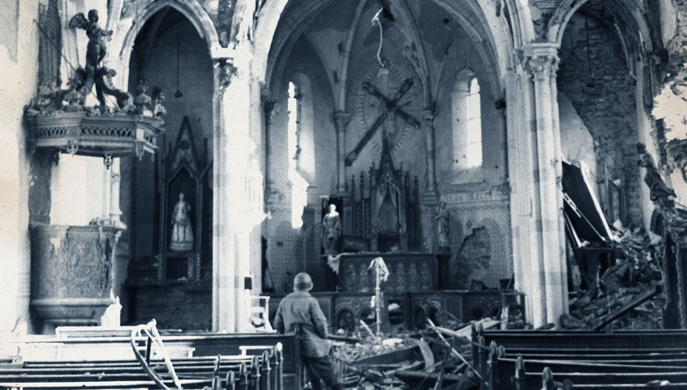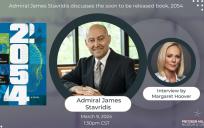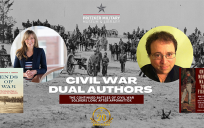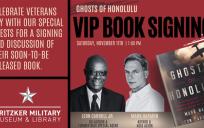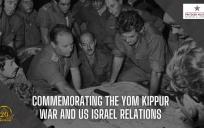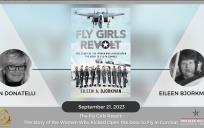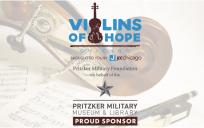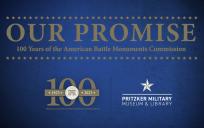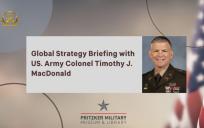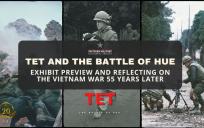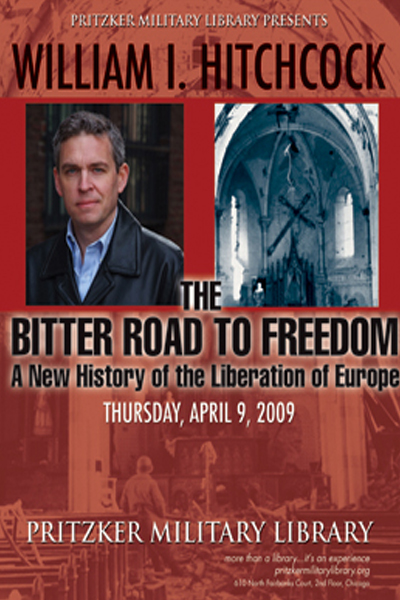
Record date:
William Hitchcock: The Bitter Road to Freedom: A New History of the Liberation of Europe
A small village, somewhere in Europe - a parade of American troops are driving through town, and crowds have gathered on both sides of the street to cheer. The Nazis have been defeated. This is the moment of freedom. A newsreel camera rolls - the G.I.s acknowledge the cheers, giving waves and weary grins. Now they're further down the street, and now they're out of frame. In the moment before the camera clicks off, we see the people of the newly-liberated village take a few steps out into the street, uncertain where to go. They are free; but for many, their houses, churches, and schools are in ruins.
Most histories of World War II focus on the famous generals and major campaigns, the soldiers and heroic sacrifices - the combat narrative of the war, particularly as it involved Americans. But The Bitter Road to Freedom is a chronicle of the civilian experience. After years of occupation and bombing, as territory was forcefully taken and re-taken, most European cities and villages were shattered. After being a prisoner in your home land for so long, what is it like to be liberated? How do you face neighbors and former friends who collaborated with the occupying forces? And how does it feel to be set free amid ruins, in a land now incapable of producing food or clean water?
In dealing with starving, dispossessed civilian populations, the victorious Allies were faced with an incredible logistical challenge - what Hitchcock calls a "human problem" whose scale and difficulty rivaled the original military problem of the war. In some cases, such as West Germany, the hard work of reconstruction led to lasting prosperity; other countries, such as Poland, immediately fell under Communist rule, and would be forced to wait decades for true liberation. For European Jews, there was the unfathomable struggle to rebuild as a people. In a history that covers the whole continent, William Hitchcock illustrates a perspective of World War II that has been long overlooked - and illuminates the full meaning of the sacrifices made by all who fought to end the war.
William Hitchcock teaches history at Temple University in Philadelphia. He received his Ph.D. from Yale University in 1994, where he taught for six years. He is the author of France Restored: Cold War Diplomacy and the Quest for Leadership in Europe; co-editor, with Paul Kennedy, of From War to Peace: Altered Strategic Landscapes in the Twentieth Century; and The Struggle for Europe: The Turbulent History of a Divided Continent, 1945-present.
